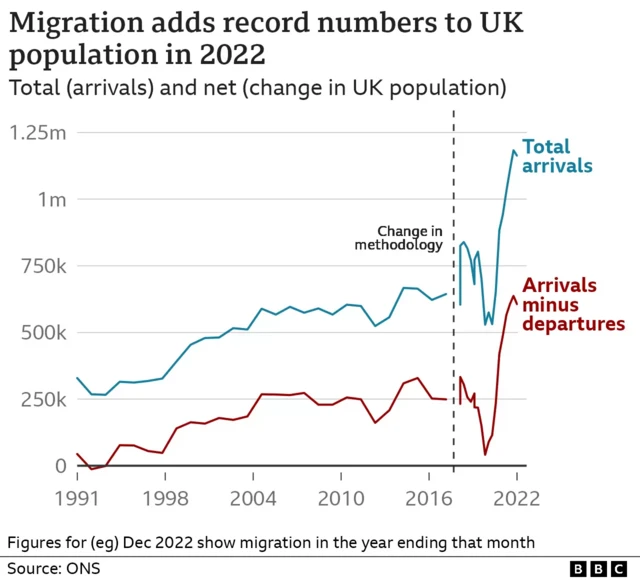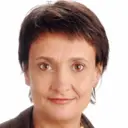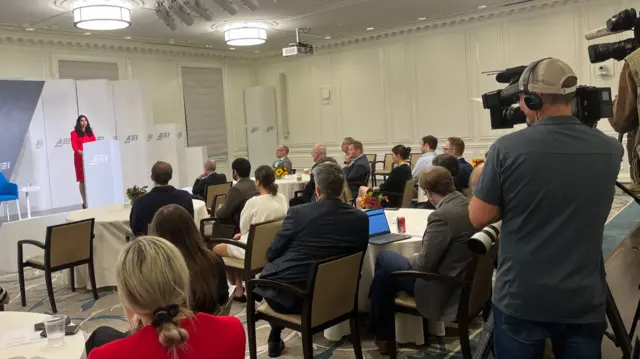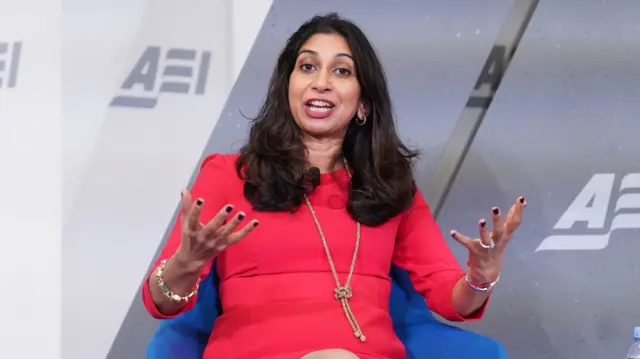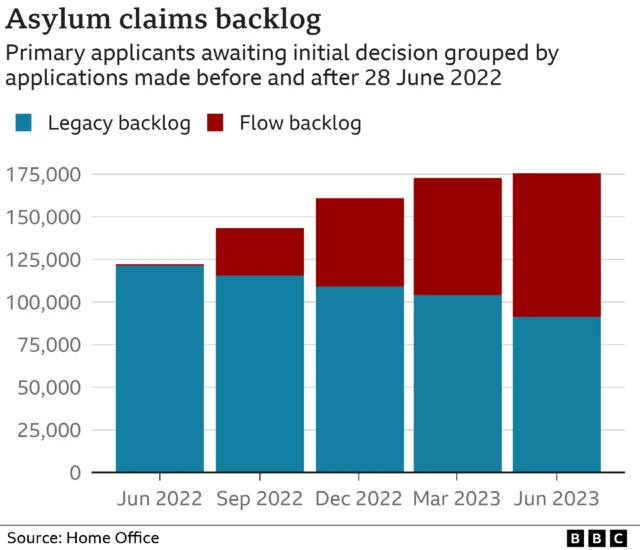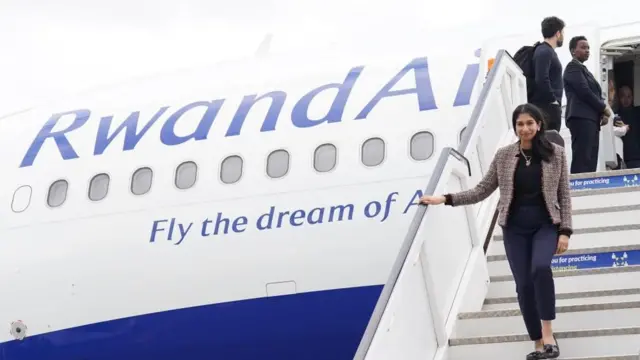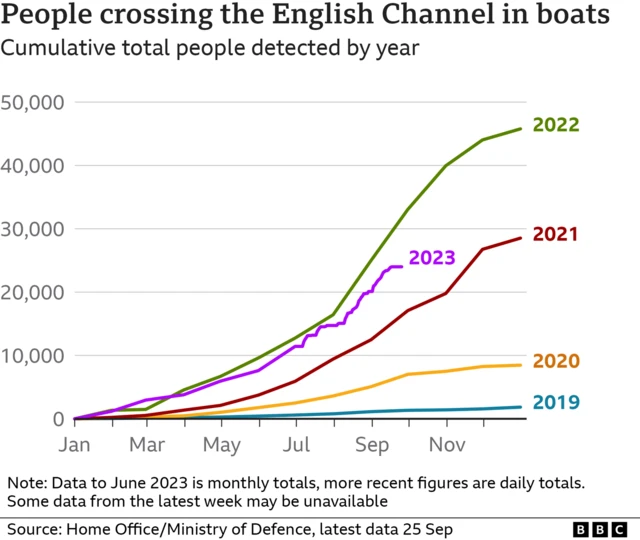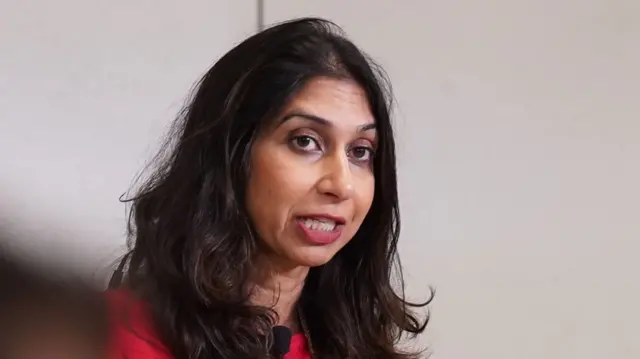What you need to know from todaypublished at 19:41 BST 26 September 2023
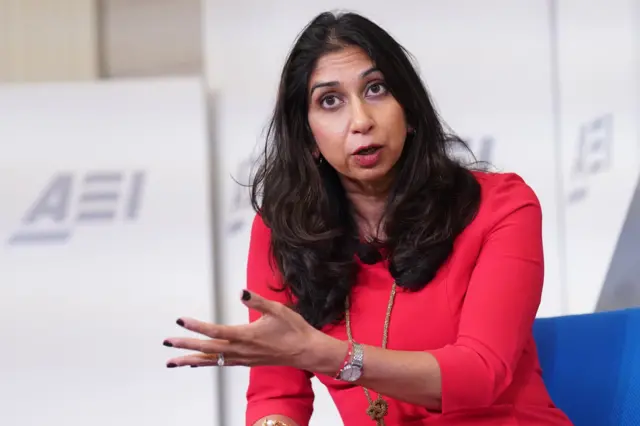 Image source, PA media
Image source, PA mediaBraverman spoke to the American Enterprise Institute in Washington DC today
Today we heard from Home Secretary Suella Braverman, who challenged the UN's convention for protecting refugees during a speech at a right-wing think tank in the US.
What she said
- She questioned whether the UN's 1951 Refugee Convention, which was drawn up after World War Two, was "fit for our modern age"
- Laws had morphed from helping those fleeing persecution to those fearing bias, she argued
- She said fearing discrimination for being gay or a woman should not be enough to qualify for refugee protection
How others reacted
- The UN’s refugee agency rejected her call to tighten the definition on who qualifies as a refugee, saying the convention had saved "millions of lives"
- Labour said she was trying to "distract from her failures" in getting to grips with the UK’s migrant crisis, and accused her of using gay people and women as "scapegoats"
- Tim Loughton, a Conservative member of the Home Affairs Committee, said Braverman "had a point" and "the UK cannot be the refugee camp for the entire world"
The figures
- Braverman said the UN Refugee Convention conferred refugee rights to 780 million people - we look at that number here. The UN’s refugee agency estimates the world had around 35 million refugees, external at the end of 2022
- After her comments on gay people seeking refugee status, it's worth noting that 1.5% of the 74,751 asylum claims in the UK last year cited sexual orientation as the basis for their claim
The big picture
Much of the world is signed up to the UN's Refugee Convention - so the idea she could single-handedly drive through reforms, or that it is in her remit alone, is quite unrealistic, our political correspondent Ione Wells writes.
But by starting the debate she wants to highlight a determination to take a tough approach on migration.
Our full story can be found here. We're signing off for the night, thanks for joining us.
